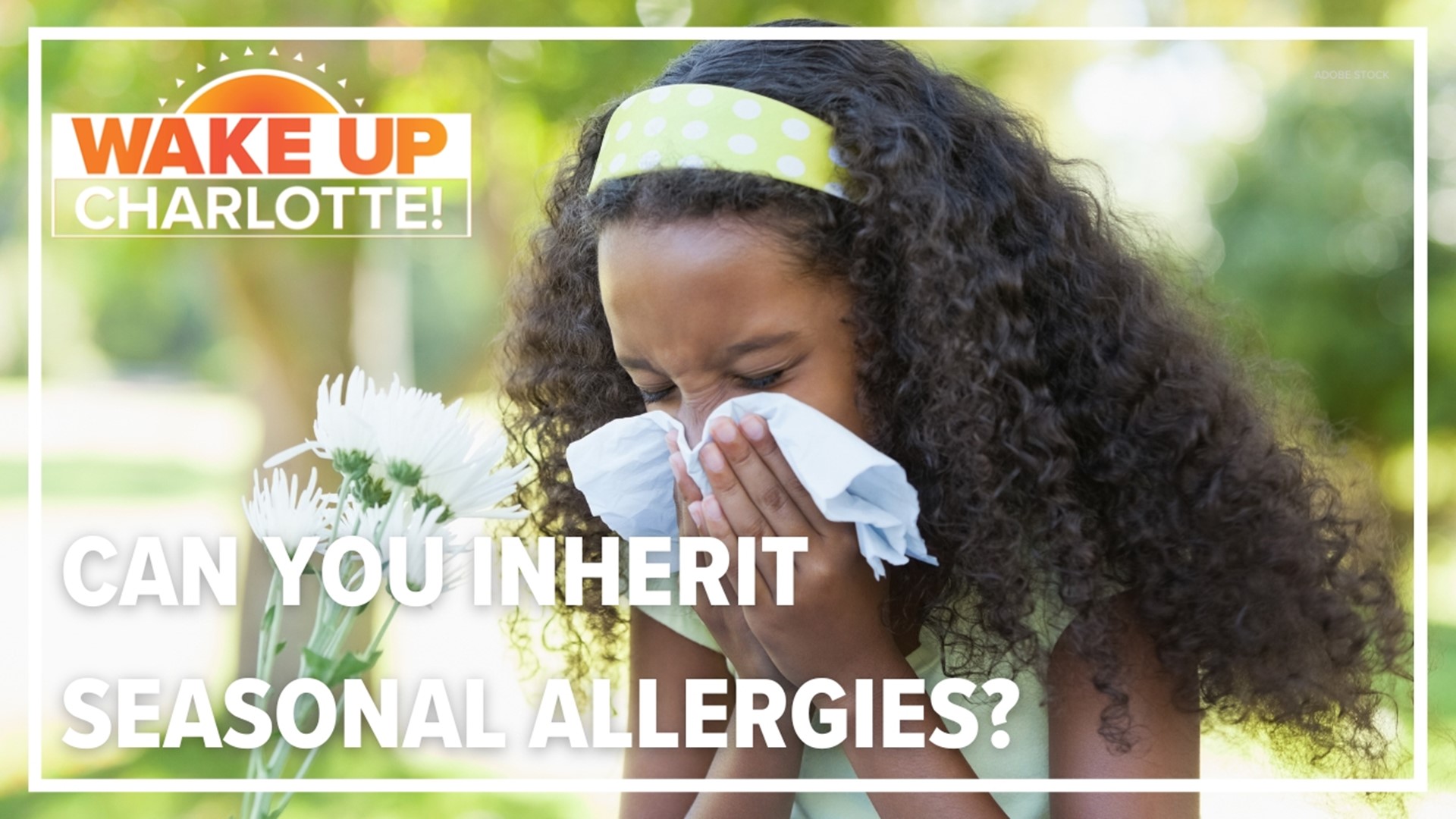CHARLOTTE, N.C. — Allergy season is still here but you may soon feel some relief. With May winding down and rain coming to the Carolinas, we're seeing lower pollen levels.
But have you ever wondered how you got those allergies in the first place? Is it possible that you inherited them from your parents?
THE QUESTION
Are your allergies largely inherited?
OUR SOURCES
THE ANSWER
Yes, susceptibility to allergies is largely inherited. However, that doesn't mean you will display the exact same allergic reactions as your parents.
WHAT WE FOUND
The Mayo Clinic explains when you have allergies, what happens is your immune system makes antibodies that identify an allergen as harmful when it isn't. Your immune system then reacts, activating inflammation of the skin, sinuses, airways, or digestive system.
Those allergies are often passed down from parents to children, according to the American College of Allergy Asthma and Immunology.
"There are certain genetic factors, Gupta said. "If your parents had one of those things like food allergy or eczema, the risk is that your child could be more genetically susceptible to developing one of those other things."
Gupta said the risk of having an allergy increases when one or both parents have one. However, that doesn't mean their children have the exact same allergy.
"Food allergies, seasonal allergies, and asthma all fall under a category," Gupta said. Even if both parents had a shrimp allergy, it doesn't necessarily mean you have a higher risk of having a shrimp allergy."
Gupta explains it also doesn't mean these inherited allergies will always show up.
"You may have a genetic predisposition which means if your parents have that genetic dysfunction, then you have that change it doesn't always show up, and there are a lot of other factors that may ignite it," Gupta said.
Contact Meghan Bragg at mbragg@wcnc.com and follow her on Facebook, Twitter and Instagram.
VERIFY is dedicated to helping the public distinguish between true and false information. The VERIFY team, with help from questions submitted by the audience, tracks the spread of stories or claims that need clarification or correction. Have something you want VERIFIED? Text us at 704-329-3600 or visit VERIFY.

